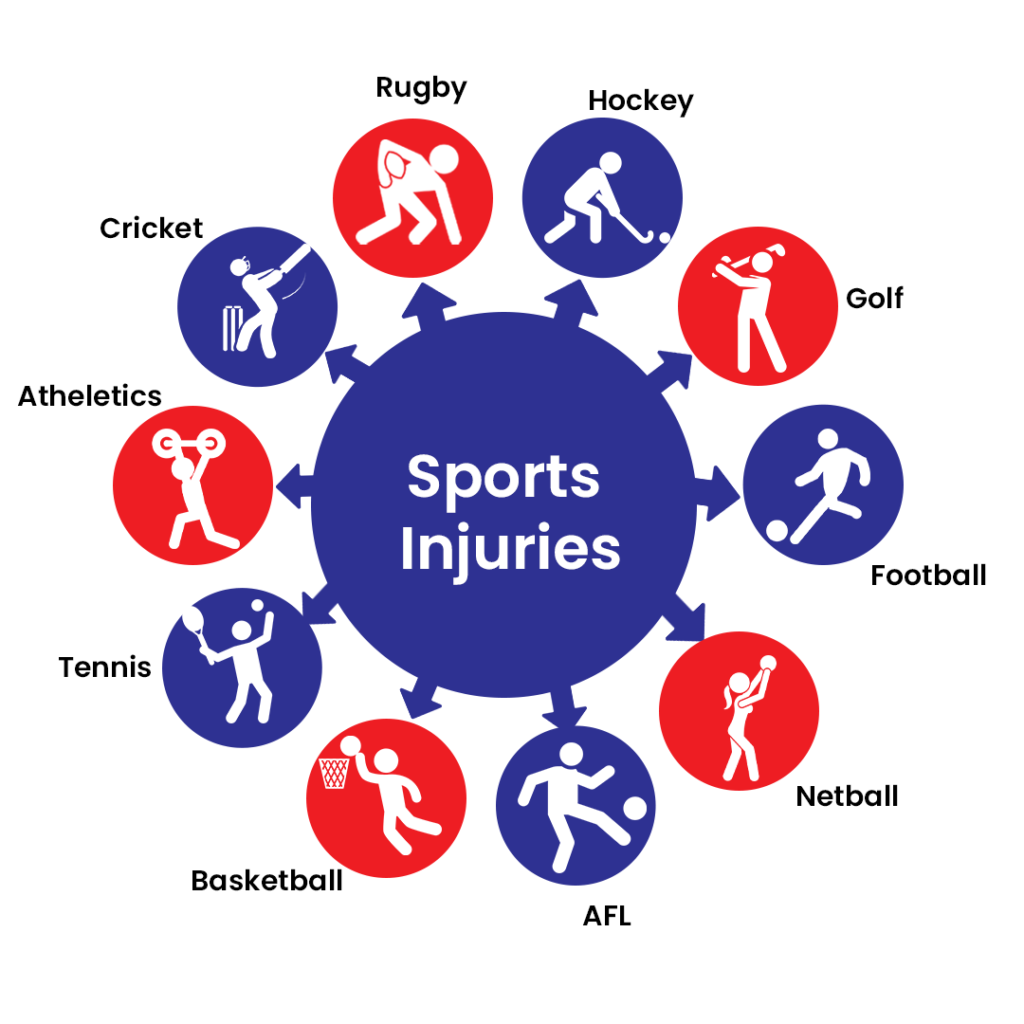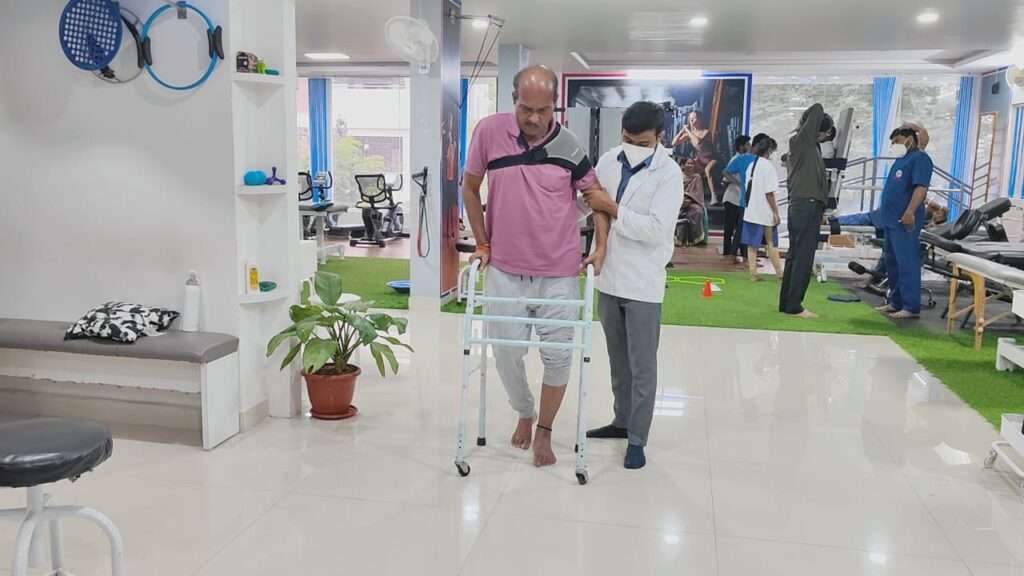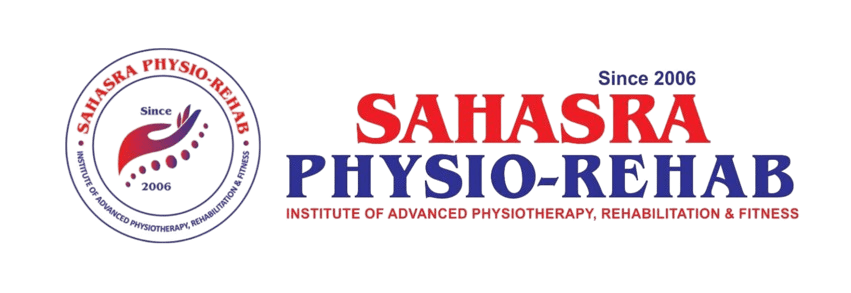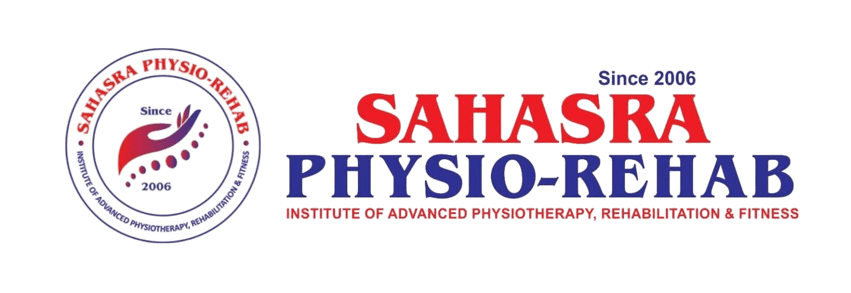Welcome to Sahasra Physio Rehab
Sports Injury Rehabilitation
Head Specialist

Physiotherapy specialist
Dr. A. Laxmi Narsimlu
Sports Injury Rehabilitation
At Sahasra Physio Rehab, we are dedicated to providing exceptional physiotherapy and rehabilitation services to support your recovery journey. Our Homely Inpatient-Day Care Rehabilitation program offers personalized care in the comfort of your own home, ensuring convenience and comfort throughout your rehabilitation process.


Accelerating Recovery and Enhancing Performance
In the world of sports, injuries are an inevitable part of an athlete’s journey. Whether it’s a sprained ankle, a torn ligament, or a fractured bone, the road to recovery can be challenging. That’s where rehabilitation in sport comes into play. With proper guidance and support, athletes can accelerate their recovery process and regain peak performance. In this article, we will explore the key aspects of rehabilitation in sport and how it contributes to the overall well-being of athletes.
The Process of Rehabilitation
Injury Assessment and Diagnosis
The first step in any rehabilitation program is a thorough assessment and accurate diagnosis of the injury. Sports physiotherapists, in collaboration with medical professionals, conduct a detailed evaluation to understand the extent of the damage and develop an appropriate treatment plan. This involves assessing range of motion, strength, flexibility, and other factors specific to the injury.
Designing a Personalized Rehabilitation Program
Once the injury is diagnosed, a personalized rehabilitation program is designed to address the athlete’s specific needs. This program typically includes a combination of exercises, manual therapy, and other specialized techniques tailored to promote healing, restore strength, and enhance performance. Each program is unique, taking into account the athlete’s age, fitness level, and the nature of the injury.
Progressive Exercise and Strength Training
A vital component of any rehabilitation program is progressive exercise and strength training. This involves gradually increasing the intensity and complexity of exercises to stimulate the body’s healing process and rebuild strength. Under the guidance of a qualified sports physiotherapist, athletes perform a variety of exercises targeting the affected area, as well as the surrounding muscles and joints, to regain optimal function.
Functional Rehabilitation and Sports-Specific Training
As the athlete progresses through their rehabilitation journey, the focus shifts towards functional rehabilitation and sports-specific training. This phase involves incorporating activities and movements that replicate the demands of their particular sport. By simulating sport-specific scenarios, athletes can regain their agility, balance, and coordination, enabling a seamless transition back into their competitive environment.
Monitoring and Adjusting the Rehabilitation Program
Rehabilitation is a dynamic process that requires ongoing monitoring and adjustment. Regular evaluations are conducted to track progress, identify any limitations or setbacks, and modify the program accordingly. This ensures that the rehabilitation plan remains effective and aligns with the athlete’s evolving needs throughout the recovery process.

The Benefits of Rehabilitation in Sport
Faster Recovery and Injury Prevention
One of the primary benefits of rehabilitation in sport is its ability to expedite the recovery process. By implementing targeted interventions, athletes can regain strength, mobility, and function in a more efficient manner. Moreover, a well-structured rehabilitation program significantly reduces the risk of reinjury by addressing underlying weaknesses and imbalances.
Improved Performance and Longevity
Rehabilitation not only helps athletes recover from injuries but also enhances their performance and longevity in the sporting arena. By optimizing movement patterns, improving flexibility, and developing core strength, athletes can maximize their athletic potential and achieve peak performance. Additionally, by promoting overall physical and mental well-being, rehabilitation contributes to long-term athletic success.
Psychological Support and Confidence Building
Injuries can take a toll on an athlete’s psychological well-being, affecting their confidence and mindset. Rehabilitation programs not only focus on the physical aspects but also provide psychological support to athletes. Through motivational techniques, goal setting, and mental conditioning, athletes can overcome psychological barriers, regain their self-belief, and approach their sport with renewed confidence.


